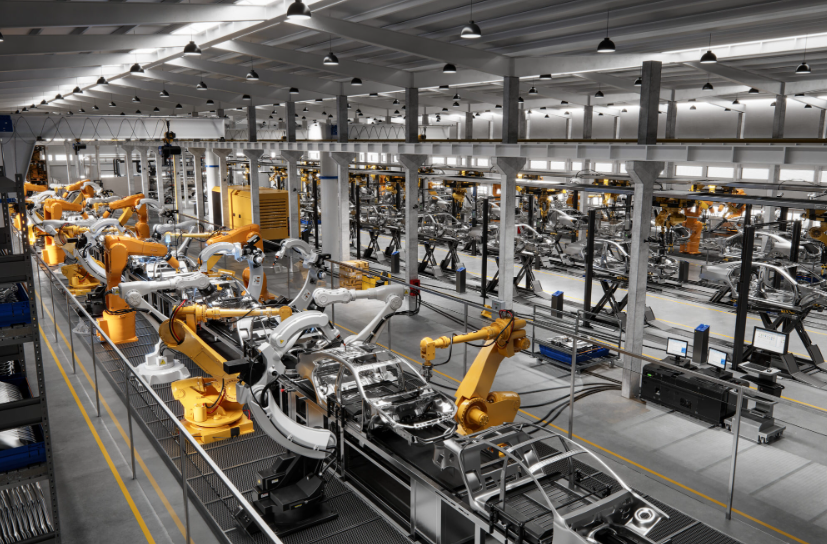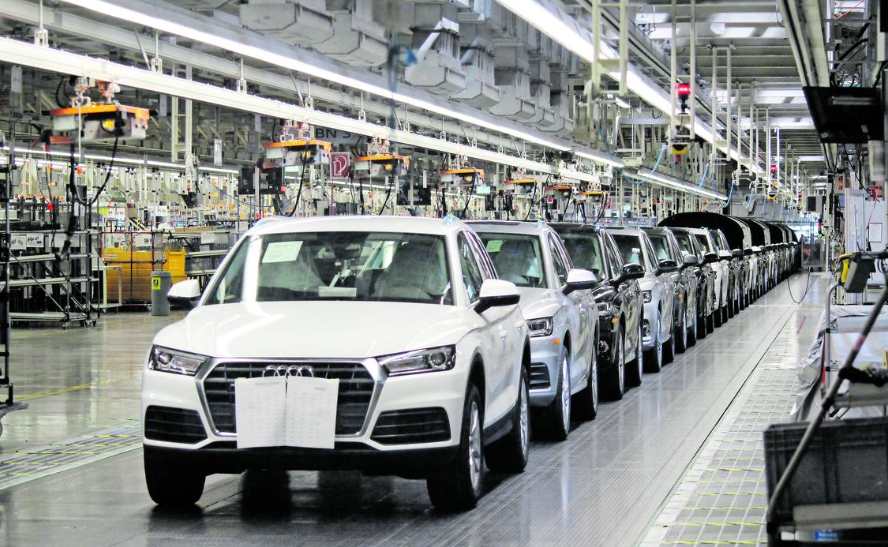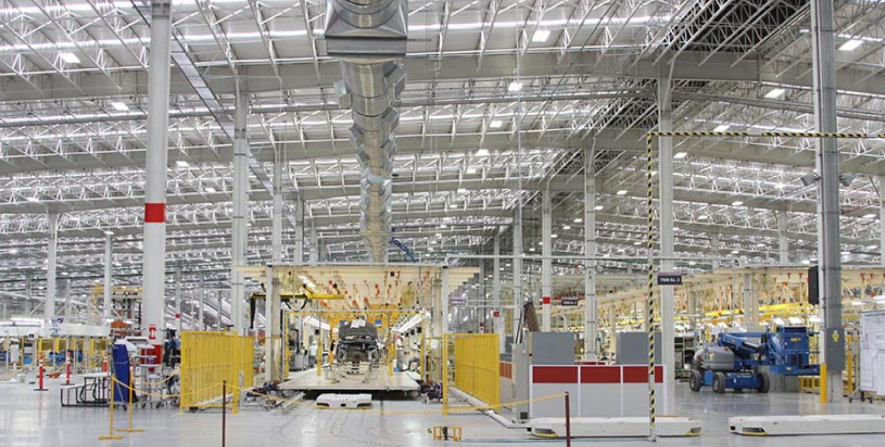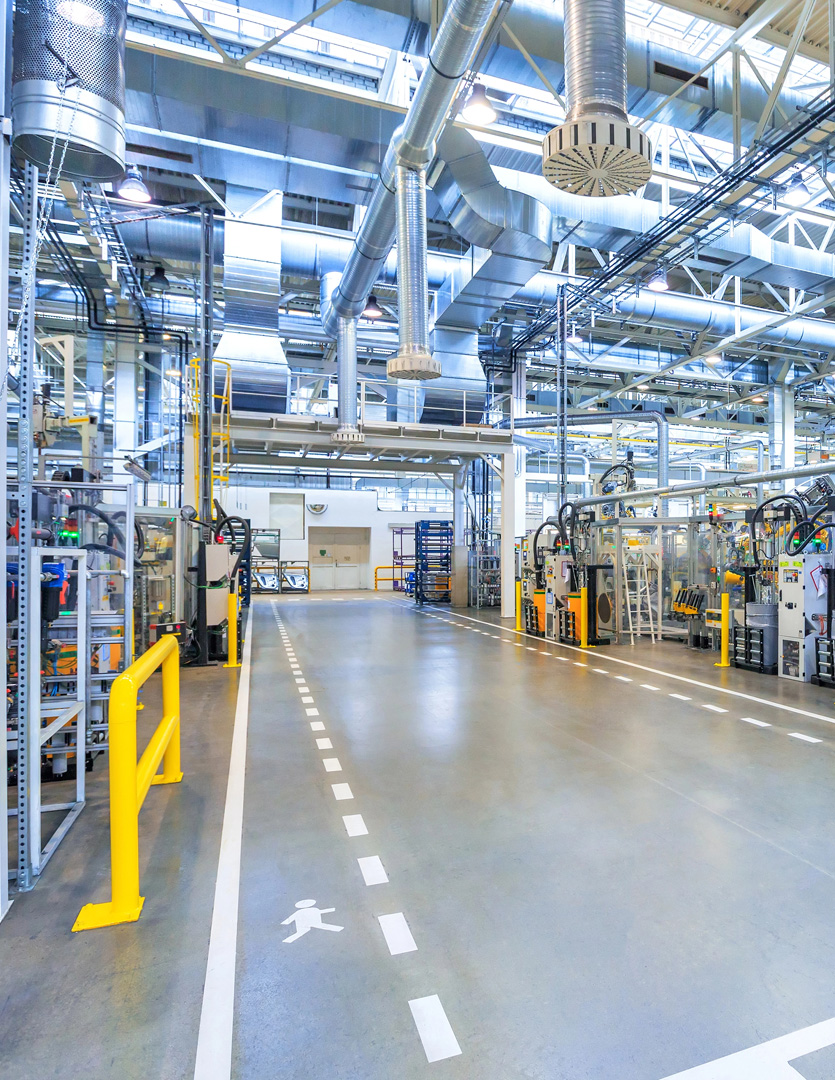
Innovation, New Products, New Ideas Drive
What Makes the Automotive Industry Ripe for Real-Time Data Decisioning?
The automotive industry is characterized by complex supply chains, intricate production processes, and stringent quality requirements. To thrive in this environment, manufacturers must be agile and responsive. Real-time decisioning—the ability to make informed decisions instantly based on the most current data—plays a pivotal role in achieving these goals.
Automotive manufacturers need real-time data for:
Inventory Management
The automotive supply chain is a complex network involving multiple suppliers, manufacturers, and distributors. Efficient supply chain management is crucial for minimizing production costs and meeting delivery schedules.
Real-time decisioning enables manufacturers to:
- Monitor inventory levels: By tracking inventory in real-time, manufacturers can ensure that they have the necessary materials and parts on hand without overstocking. This reduces carrying costs and minimizes the risk of production delays due to material shortages.
- Track shipments: Real-time tracking of shipments allows manufacturers to anticipate delays and adjust production schedules accordingly. This proactive approach helps in maintaining production continuity.
- Respond to disruptions: Supply chain disruptions, such as natural disasters or geopolitical events, can have a significant impact on production. Real-time decisioning allows manufacturers to quickly assess the situation and take corrective actions, such as sourcing materials from alternative suppliers.
Production Optimization
Optimizing production processes is essential for improving efficiency and reducing costs. Real-time decisioning provides the insights needed to make immediate adjustments on the production floor:
• Reduce downtime: Real-time monitoring of machinery and equipment can help detect potential issues before they lead to downtime. Predictive maintenance, powered by real-time data, ensures that equipment is serviced at the right time, preventing unexpected breakdowns.
• Resource optimization: Efficient allocation of resources, such as labor, materials, and machinery, is critical for maximizing productivity. Real-time decisioning enables dynamic scheduling and resource allocation based on current production needs.
• Improve scheduling: Traditional production schedules can be rigid and may not account for real-time variations in demand or production capacity. Real-time decisioning allows for dynamic scheduling, ensuring that production is aligned with current requirements.

Monitor Inventory
Track Shipments
Respond to Disruption
Reduce Downtime
Real-time Monitoring
Predictive Maintenance
Resource Optimization
Real-time Decisioning
Maximize Productivity
Improved Scheduling
Real-time Variations
Dymanic Scheduling
Quality Control
Maintaining high-quality standards is a top priority in automotive manufacturing. Real-time decisioning enhances quality control processes by:
• Early defect detection: Continuous monitoring of production processes enables the early detection of defects or anomalies. By identifying issues in real-time, manufacturers can take immediate corrective actions, reducing the incidence of defective products reaching customers.
• Process Improvement: Real-time data analysis helps identify trends and patterns that can inform process improvements. By continuously refining production processes, manufacturers can achieve consistent quality and reduce variability.
• Compliance with standards: The automotive industry is subject to stringent regulatory requirements and quality standards. Real-time decisioning ensures that manufacturers can quickly identify and address any deviations from these standards, ensuring compliance and avoiding costly penalties.
From Data to Decisions
Innovations Powering the Next
Generation of Automotive Manufacturing
Cost Savings
Real-time decisioning contributes to significant cost savings by improving efficiency and reducing waste:
• Minimize waste: Real-time monitoring helps identify areas where materials are being wasted or used inefficiently. By addressing these issues promptly, manufacturers can reduce waste and improve yield.
• Improve energy efficiency: Optimizing energy usage is a key aspect of cost management. Real-time data on energy consumption allows manufacturers to adjust processes and reduce energy waste, leading to lower utility bills.
• Improve labor efficiency: Efficient use of labor resources is crucial for controlling costs. Real-time decisioning enables better workforce management, reducing the need for overtime and ensuring that labor is deployed where it is most needed.
Enhanced Customer Satisfaction
Customer satisfaction is paramount in the automotive industry, where competition is fierce, and customer expectations are high. Real-time decisioning helps manufacturers to:
• Meet delivery deadlines: Timely delivery of products is essential for maintaining customer satisfaction. Real-time decisioning ensures that production schedules are adhered to, and any potential delays are addressed promptly.
• Improve product quality: High-quality products lead to satisfied customers and repeat business. Real-time quality control processes help ensure that every product meets or exceeds customer expectations.
• Adapt to market changes: The automotive market is dynamic, with rapidly changing customer preferences and market conditions. Real-time decisioning allows manufacturers to quickly adapt to these changes, ensuring that their product offerings remain relevant and competitive.
6. Competitive Advantage
Competitive Advantage
In a highly competitive industry, real-time decisioning provides a significant edge:
• Innovation: The ability to quickly implement and test new processes or technologies is crucial for staying ahead of the competition. Real-time decisioning accelerates innovation by providing immediate feedback on new initiatives.
• Agility: The automotive industry is subject to frequent changes in regulations, market conditions, and customer preferences. Real-time decisioning enhances agility, enabling manufacturers to respond swiftly to these changes.
• Data-driven decisions: Making informed decisions based on real-time data leads to better outcomes. Manufacturers that leverage real-time decisioning are better positioned to make strategic decisions that drive growth and profitability.
Technologies that Enable Real-Time Decisioning
Industrial Internet of Things (IoT)
Industrial IoT devices collect data from various sources, such as machinery, production lines, and supply chain components. This data provides real-time insights into the status and performance of different processes.
Machine Learning
AI and ML algorithms analyze real-time data to identify patterns, predict outcomes, and recommend actions. These technologies enable predictive maintenance, quality control, and process optimization.
Big Data Analytics
Handling and analyzing large volumes of data in real-time is critical for effective decision-making. Big data analytics platforms process data from multiple sources, providing actionable insights in real-time.
Cloud Computing
Cloud-based platforms offer the scalability and flexibility needed to manage real-time data and analytics. They enable seamless integration of data from various sources and provide the computational power required for real-time analysis.
Advanced Manufacturing Execution Systems (MES)
MES systems track and monitor production processes in real time, providing detailed information on production status, performance, and quality. They integrate with other systems, such as ERP and supply chain management, to provide a comprehensive view of manufacturing operations.
Challenges and Solutions
Implementing Real-Time Decisioning
Challenges and Solutions for Automotive Manufacturers Trying to Implement Real-Time Decisioning
Implementing real-time decisioning in automotive manufacturing presents several challenges, including data integration, system interoperability, and change management. However, these challenges can be addressed through strategic planning and the right technological solutions.
Streaming data has become a major challenge for companies of all types, in addition to automotive manufacturers. Integrating data from various sources, such as IoT devices, production systems, and supply chain management tools, can be complex, especially when its flowing into systems in ever-increasing amounts. Ensuring that this data is accurate, consistent, and available in real-time is crucial.
Solution: Use a data platform that easily integrates and works well with commonly used streaming tools like Kafka and Flink. Those tools have become standard, but they present challenges when you try to scale their use and require support from a data platform that can combine stateful and stateless processing.
Different systems used in automotive manufacturing, such as ERP, MES, and supply chain management, must work together seamlessly. Ensuring interoperability between these systems is essential for effective real-time decisioning.
Solution: Adopt open standards and APIs to ensure interoperability between different systems. Use middleware solutions to bridge gaps between disparate systems and facilitate data exchange.
Implementing real-time decisioning involves significant changes to processes and workflows. Ensuring that employees are on board and trained to use new technologies is critical for success.
Solution: Develop a comprehensive change management strategy that includes employee training, communication, and support. Involve employees in the implementation process to ensure buy-in and smooth transition.
Conclusion
Real-time decisioning is no longer a luxury but a necessity for automotive manufacturers. It enables them to optimize operations, enhance quality control, improve supply chain management, and gain a competitive edge. By leveraging enabling technologies such as IoT, AI, big data analytics, and cloud computing, manufacturers can implement real-time decisioning effectively.
As the automotive industry continues to evolve, those who embrace real-time decisioning will be better positioned to succeed. By making informed decisions based on real-time data, manufacturers can improve efficiency, reduce costs, and deliver high-quality products that meet customer expectations.


Get In Touch
(415) 886-5915
Location
240 S Mathilda Ave,
Sunnyvale, CA 94086





